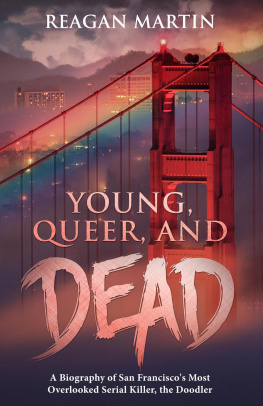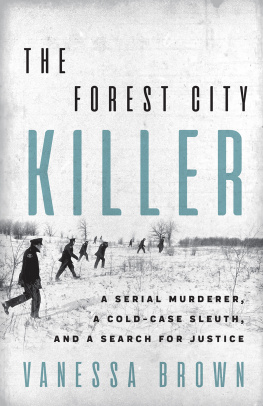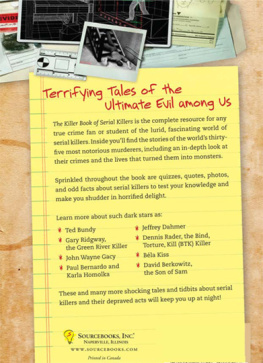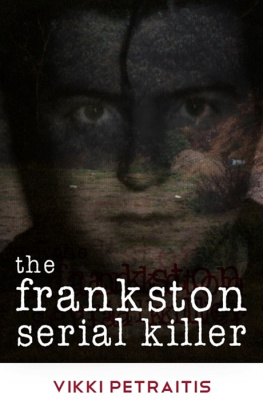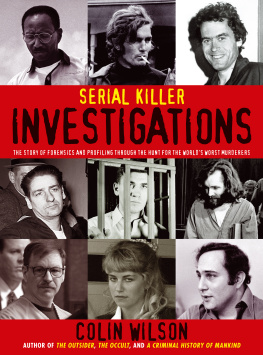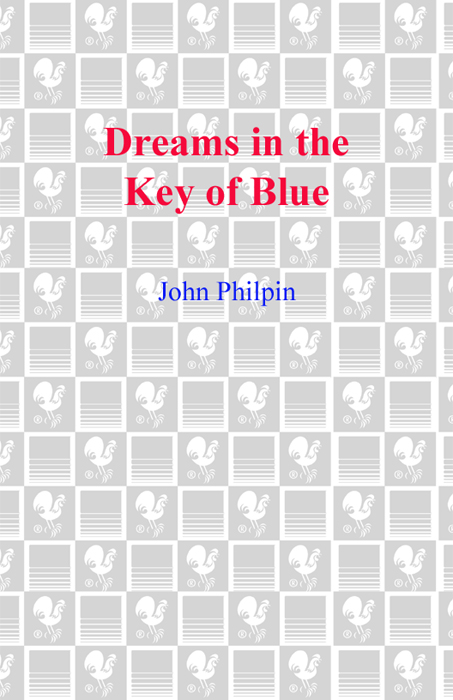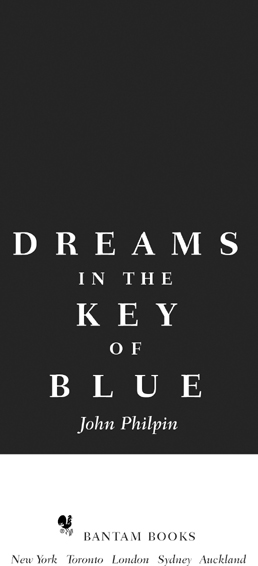I STARED AT THE WALL, THE SOURCE OF AN INSISTENT scraping and scratching.
Mice, the cop said.
I resisted the impulse to smash through the ancient plaster that remained in place only through the grace of generations of wallpaper and artlessly applied paint.
The metallic stink of blood stung my throat and fused with the acrid scent of decay, and the fragrance of citrus fruit.
When cops work a crime scene, they dust with black fingerprint powder, spray magical mists, shine high-tech blue and black lights into sinks and shower stalls in search of blood traces, hairs, skin cells, semen.
They do not spray orange-scented air freshener.
Someone patiently peeled and ate an orange.
I looked from the wall to the floor, where a dark stain stretched like a four-foot, crimson-black Rorschach blot waiting for a subjects response.
A single word nailed itself behind my eyes: slaughter.
My hands were cold, but I sweated in the overheated space. I grew dizzy with the smells and mind-clouds, and the grating racket concealed behind plaster and lath.
Citrus consumed, seeds placed neatly on rind, traces of blood.
The crime scene photographs I was looking through showed a once-attractive brunette, nude, splayed in the middle of the glistening stain. Her throat was slicedthree deep, yawning wounds. Her torso was riddled with punctures.
Then there was the coup de grce.
Looks like he tried to cut off her head, the cop said.
I clenched my teeth and swallowed hard.
This ones name was
I know who she is, I interrupted.
I tossed the glossy eight-by-tens onto the coffee table, crouched, and touched the carmine blemish with my fingertips.
When life ends, some of us pack ourselves in burnished copper cases for a short descent into the earth, others choose to go quickly to ashes, and some are denied choiceabandoned as waste for cleaning crews to eradicate.
I knew her, I said.
I DROVE INTO RAGGED HARBOR, MAINE, AND FELT AN immediate sense of dj vu.
The freedom that seemed so illusory to me as a street kid in Bostons Roxbury section, I discovered south of the city on Nantasket Beach in my teens. I prowled the bay side of my seven-mile peninsula, explored each inlet and cove, examined skate eggs, horseshoe crabs, and sandshark cadavers. Then I shifted my attention to the oceans infinite rhythms, and probed seaweed and driftwood, new treasures that arrived with each tide change. I met the resident scavengers and predators; I knew the wildly shifting ocean currents, the indifference of an immense and surging sea.
I drove Ragged Harbors mile-long causeway between mudflats and seawalls, and into the village. The inner harbor on my right was a bay, a haven for water craft. Beyond a cove and a breakwater on the left, the dark Atlanticmy familiar friendthrobbed.
The smell of dead fish billowed from stacks of crab pots. Great black-backed gulls bombed the rocks along the breakwater with mussels and clams, then dropped from the sky to pick at the shattered shells with their orange beaks. A dory rested upside down on a stony beach.
Gulls screamed; sandpipers minced ahead of low tides bantam waves; terns dove at the cracked shells left behind by the gulls; a cormorants head and long neck slipped through the harbors placid surface.
I felt as if I had rediscovered a private paradise, a place where I could continue my lifelong love affair with the sea.
Why move to Michigan? my daughter Lane asked when, years ago, I had announced my imminent departure from Boston. Thats nearly midway between the two oceans. You said you couldnt stand the thought of being landlocked.
Well, that guarantees that Ill be back.
Seven years after that conversation, I drove into Ragged Harbors village.
The town lived a divided life. A leaning white church behind an erect white picket fence, the general store, a hardware store with gas pump in front, the post office and police station housed in the municipal buildingall indicated an old New England community. Willys Twice-Daily Whale Cruises, guaranteeing sightings, and Ragged Ts, each shirt sporting a jagged neck seam, lured summer tourists.
I consulted my map, turned left at the second of the two stoplights, and drove into the communitys third identity, the college town.
Harbor College was small, four hundred women on a hilltop with views of the Atlantic Ocean and the cove that served as safe harbor for dumpy lobster and crab boats, fishing trawlers, and sleek cruisers. The fieldstone and wood college buildings, originally a seminary, dated from the nineteenth century. With religious fervor fading in the 1940s, the seminary closed its doors. Progressive educators approached the board of directors and proposed the creation of a small, student-centered liberal arts college. In 1955, the board ceded the campus to the college.
Stuart Gilman, my contact at the college, occupied an office in the administration building, but lacked a title. The short, paunchy, balding man was power-attired in reds and browns, and deceptively satin-tongued. Had it not been for his extensive repertoire of nervous gestures, he would have made a well-oiled public relations drone.
Ive heard that Dr. Lucas Frank is a recluse, Gilman said, bobbing his head. I was surprised that you agreed to come out here.



